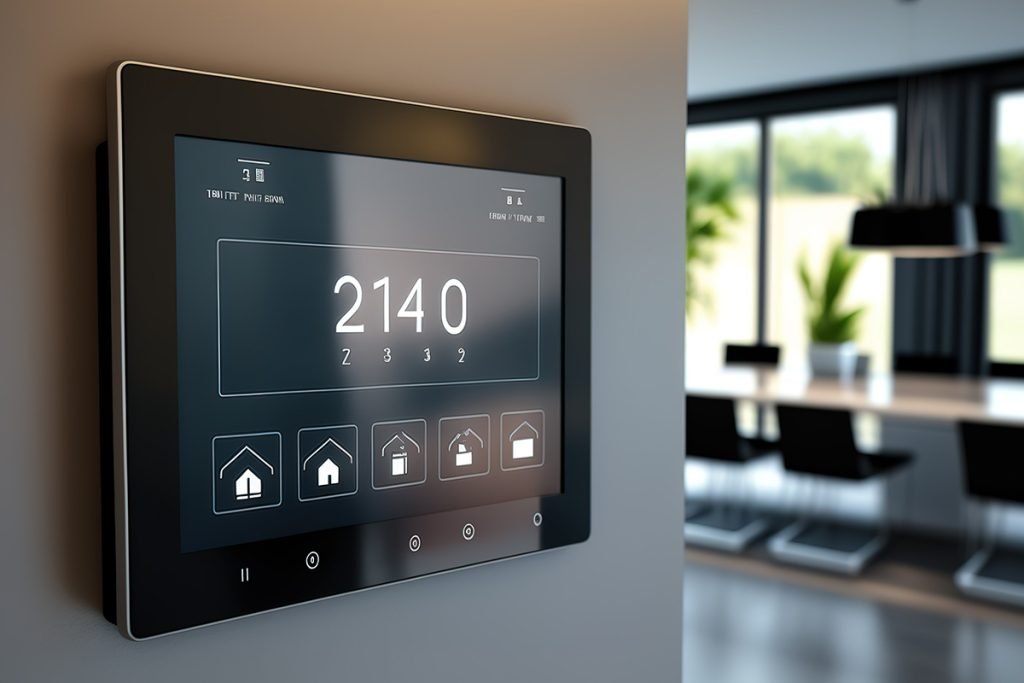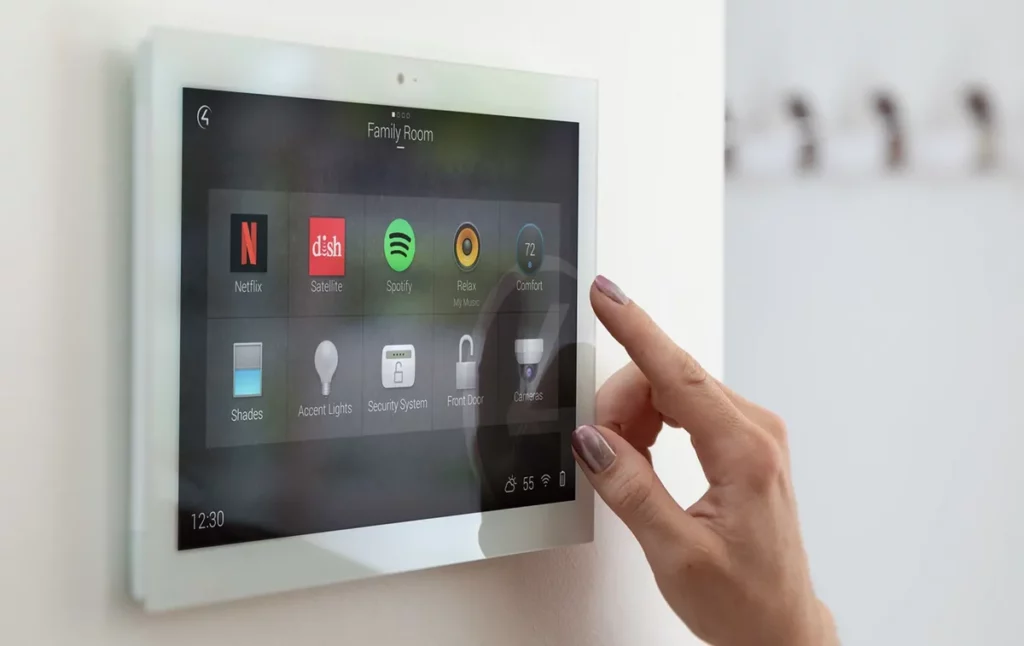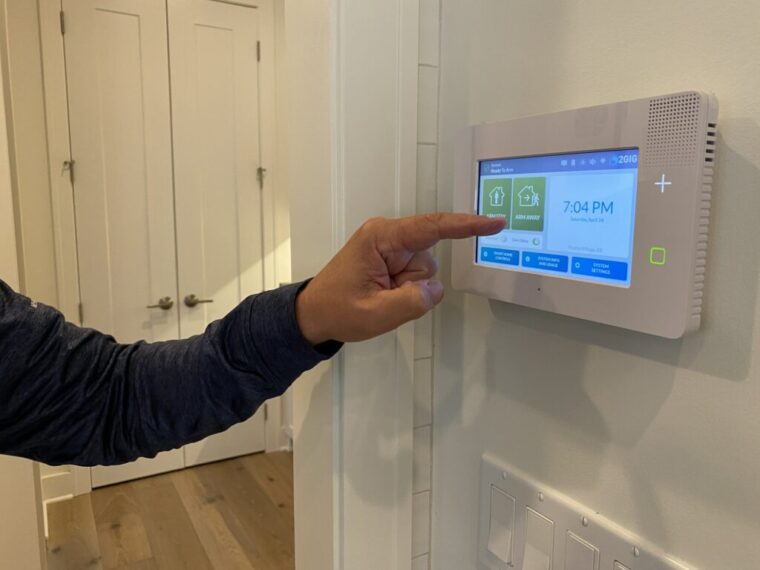When it comes to securing homes and businesses, the choice between monitored and unmonitored alarm systems is a critical decision. With the rise in property crime and the increasing importance of safety, understanding the differences between these two types of alarm systems can significantly impact the level of security one can achieve. This article delves into the key differences, advantages, and disadvantages of monitored and unmonitored alarms, helping you make an informed choice.
Understanding Alarm Systems
Before diving into the specifics of monitored and unmonitored alarms, it is essential to understand what these systems entail. Alarm systems are designed to detect unauthorised entry into a property, alerting homeowners or authorities to potential threats. They can be categorised into two main types: monitored and unmonitored. The choice between these systems often hinges on the level of security desired, the type of property, and the homeowner’s lifestyle. For instance, individuals who travel frequently may prefer a monitored system for peace of mind, knowing that their property is being watched even when they are away.
What is a Monitored Alarm System?
A monitored alarm system is connected to a central monitoring station that keeps an eye on the property 24/7. When an alarm is triggered, the monitoring centre is immediately notified, allowing them to take swift action. This may include contacting the homeowner and, if necessary, dispatching local authorities. Additionally, many modern monitored systems come equipped with advanced features such as video surveillance, remote access via smartphones, and integration with smart home devices. This level of connectivity not only enhances security but also allows homeowners to monitor their premises in real-time, providing an extra layer of reassurance.
What is an Unmonitored Alarm System?
In contrast, an unmonitored alarm system operates independently. When an alarm is triggered, it typically emits a loud sound to alert nearby individuals but does not notify a monitoring centre. The responsibility for responding to the alarm falls solely on the homeowner or anyone nearby. While unmonitored systems can be less expensive and easier to install, they may not provide the same level of security as their monitored counterparts. Homeowners must consider factors such as response time and the likelihood of neighbours responding to an alarm, as the effectiveness of these systems often relies on the immediate vicinity’s attentiveness to potential threats. Furthermore, some unmonitored systems now offer features like smartphone alerts, enabling homeowners to receive notifications directly, thus bridging the gap between the two types of systems while still maintaining a degree of independence.
The Advantages of Monitored Alarm Systems
Monitored alarm systems offer several advantages that can significantly enhance security. Here are some of the key benefits:
24/7 Professional Monitoring
One of the most significant advantages of a monitored alarm system is the round-the-clock professional monitoring. Trained personnel are always on hand to respond to alarms, ensuring that any potential threat is addressed promptly. This level of vigilance can be particularly reassuring for those who travel frequently or spend long hours away from home. Furthermore, many monitoring services employ advanced technology that allows them to assess the situation remotely, providing real-time updates to homeowners and emergency services alike. This means that even in the event of a false alarm, the monitoring team can quickly ascertain the situation and take appropriate action, minimising unnecessary panic and disruption.
Rapid Response Times
In the event of a break-in or emergency, every second counts. Monitored systems are designed to alert authorities quickly, often within minutes of an alarm being triggered. This rapid response can be crucial in preventing property damage or personal harm. Additionally, many systems are equipped with features such as two-way communication, allowing the monitoring centre to speak directly with the homeowner or intruder, which can deter further criminal activity. The integration of smart technology also means that users can receive instant notifications on their mobile devices, keeping them informed and engaged with their home security, even when they are miles away.
Peace of Mind
Knowing that a professional monitoring service is watching over your property can provide invaluable peace of mind. Homeowners can rest easier, knowing that help is just a phone call away, even if they are not present to respond to an alarm themselves. This sense of security extends beyond mere property protection; it also encompasses the safety of loved ones. Families with children or elderly relatives can feel particularly reassured, as monitored systems can include features such as medical alert buttons or motion sensors that alert caregivers if someone has fallen or requires assistance. Moreover, many monitored systems can be tailored to meet specific needs, ensuring that every household can find a solution that fits their lifestyle and security requirements.
The Disadvantages of Monitored Alarm Systems
While monitored alarm systems offer many benefits, they are not without their drawbacks. Here are some considerations to keep in mind:
Cost Implications
Monitored alarm systems typically come with higher upfront costs and ongoing monthly fees for the monitoring service. This can be a significant factor for those on a tight budget. However, many believe that the added security and peace of mind justify the expense.
Dependence on Technology
Monitored systems rely heavily on technology, including internet connectivity and power supply. In the event of a power outage or internet failure, the system may not function as intended. However, many modern systems incorporate backup batteries and cellular connections to mitigate this risk.
The Advantages of Unmonitored Alarm Systems
Unmonitored alarm systems also come with their own set of advantages. Understanding these can help homeowners determine if this option is suitable for their needs:
Lower Initial and Ongoing Costs
One of the most appealing aspects of unmonitored alarm systems is their lower cost. Without the need for a monthly monitoring fee, homeowners can save money while still having a basic level of security. This makes unmonitored systems an attractive option for those on a budget.
Immediate Local Alerts
Unmonitored alarms typically emit loud sounds when triggered, which can deter intruders and alert nearby individuals. This immediate local alert can sometimes be enough to prevent a break-in or alert neighbours to a potential threat.

The Disadvantages of Unmonitored Alarm Systems
Despite their advantages, unmonitored alarm systems have notable limitations that can affect their effectiveness:
Delayed Response
One of the most significant drawbacks of unmonitored systems is the lack of immediate response to an alarm. If a homeowner is not present to hear the alarm or respond to it, there is no guarantee that authorities will be notified in time to prevent theft or damage. Click here to learn about choosing a back to base security system for full-time protection.
False Alarms and Lack of Accountability
Unmonitored systems can lead to false alarms, which may occur due to user error or environmental factors. Without professional monitoring, there is no accountability for responding to these alerts, which can result in wasted resources and frustration for homeowners.
Choosing the Right System for Your Needs
Deciding between a monitored and unmonitored alarm system ultimately depends on individual circumstances and preferences. Here are some factors to consider when making your choice:
Property Type and Location
The type of property and its location can significantly influence the decision. For instance, homes in high-crime areas may benefit more from the immediate response of a monitored system, while properties in low-crime areas might find unmonitored systems sufficient.
Budget Considerations
Budget constraints play a crucial role in the decision-making process. Homeowners should weigh the costs of installation and ongoing monitoring fees against their financial situation and the level of security they require.
Personal Lifestyle
For those who travel frequently or spend long hours away from home, a monitored alarm system may provide essential peace of mind. Conversely, individuals who are often home or have a close-knit community may feel comfortable with an unmonitored system.
Combining Both Systems for Enhanced Security
For those who want the best of both worlds, combining monitored and unmonitored systems can be an effective strategy. This hybrid approach can provide immediate local alerts while also ensuring that professional monitoring is in place for added security.
Integrating Smart Technology
Modern technology allows for seamless integration of smart devices with alarm systems. Homeowners can use smart cameras, motion detectors, and other devices to enhance their security setup, regardless of whether they choose monitored or unmonitored systems.
Customising Your Security Solution
Every property is unique, and so are its security needs. Customising a security solution that combines elements of both monitored and unmonitored systems can provide a tailored approach that meets individual requirements.

Conclusion
In conclusion, the choice between monitored and unmonitored alarm systems is a significant one that can impact the safety and security of a property. While monitored systems offer the advantages of professional oversight and rapid response, unmonitored systems provide cost-effective solutions with immediate local alerts. Ultimately, the decision should be based on individual circumstances, including budget, property type, and personal lifestyle. By carefully considering these factors, homeowners can select the alarm system that best meets their security needs, ensuring peace of mind in an increasingly uncertain world.




